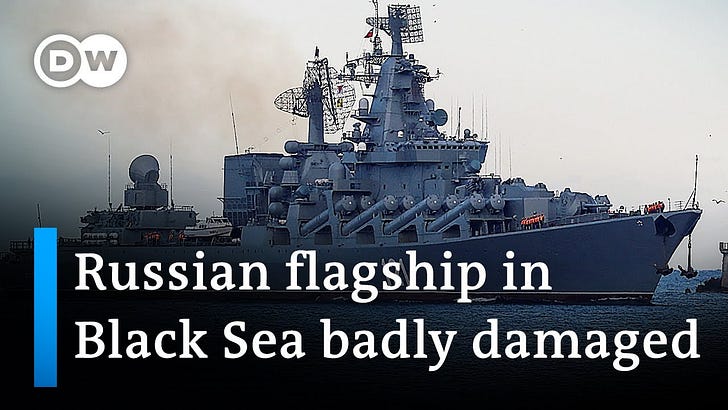Deep Dive: The "Butcher of Syria” deploys to Ukraine
Written by: Val Stutz. Edited by: Clary Estes
It’s been a month and a half since Russia began its invasion of Ukraine and reports have started to trickle in that Mariupol has fallen, though these reports have not yet been confirmed by Ukrainian forces. According to Moscow, “More than 1,000 Ukrainian marines defending the besieged city of Mariupol have surrendered and the port has been captured.” The city has been mercilessly bombarded for weeks now in a bid for Russia to have one win in an otherwise unsuccessful military campaign.
The brutality of what is happening in Mariupol, unfortunately, may only represent a hint of what is to come as Putin invites the “Butcher of Syria,” Aleksandr Dvornikov, to join in his war games. Indeed, macabre assertions by some in the West that Ukraine is quickly turning into the “Syria of Europe” feel all too poignant.
Before the invasion commenced, the high command of the Russian army was under the assumption that they would secure a quick and decisive victory in Kyiv within a matter of days. However, this did not turn out to be the case. Rather than the rapid surrender of Kyiv (as well as the assumed welcoming of Russian troops by Ukrainians), the Russian army has reportedly lost approximately 20,000 troops as of April 10th, including seven generals. This is a significant loss that is virtually unheard of in the context of modern war. Furthermore, rampant corruption, miscommunication, and vast numbers of poorly-trained, poorly-equipped srochniki, or conscripts of the Russian army, have caused serious blunders in Russia’s so-called “special military operation.”
This failure in the north no doubt drove the increased bombardment in Mariupol’. This failure is also driving Russia’s moves today towards the south and east of Ukraine ahead of a self-imposed deadline of May 9th: Victory Day. This important holiday in Eastern Europe celebrates, depending on your political point of view, either the Soviet Union’s or the West’s victory over Nazi Germany in World War II. There will unquestionably be a May 9th, May Day, parade in Moscow, and some Pro-War Russians had even previously told friends and family members (who work with our team) that they planned to celebrate the holiday in Kyiv as Russia secured victory.
In order to reach Putin’s May 9th goal, Russian forces are withdrawing from various regions across Ukraine to focus their efforts on the Donbas region, where they are expected to launch the next phase of the invasion. With several generals and other high-ranking officers in the Russian chain of command having been killed in battle, Putin has appointed a new military commander to oversee the Ukrainian Invasion, General Aleksandr Dvornikov.
Like many members of the Russian high command, Dvornikov has an extensive military background which dates back to the Soviet Union. He commanded Russia’s forces in its southern military district, including Crimea, and has fought in various wars that Russia has been involved in over the last few decades. In the 1990s, he served in Chechnya, and in 2015, he became the first Russian commander in Syria, supporting Bashar al-Assad’s campaign against rebel forces. Dvornikov is notorious for his ruthless and savage tactics in Syria, which earned him the nickname the “Butcher of Syria.” Put simply, the appointment of Dvornikov signifies a doubling down of Russia’s tactic to bomb civilian targets into submission as a way to secure victory.
In an interview with CNN, retired Lieutenant General Mark Hertling described Dvornikov as “the kind of executioner that we’ve seen prosecute these kinds of campaigns [in Chechnya and Syria], where there is an awful lot of civilian attacks, civilian destruction.” Dvornikov was responsible for ordering the violent and destructive Russian air attacks over Aleppo, which decimated civilian-populated areas. Under Dvornikov’s command, Russian forces deployed dangerous weapons that are banned under international treaties, including chemical weapons, cluster bombs, and incendiary bombs. The lethality of these deadly weapons and the indiscriminate attacks on the Syrian population left thousands of civilian casualties. Now, there is fear that this tactic may likely be used in Ukraine as “the US and Britain say they are looking into reports that chemical weapons have been used by Russian forces attacking the Ukrainian port of Mariupol.”
Dvornikov has proven himself as a competent military leader with years of experience, and has a strong battlefield intelligence of Donbas. His knowledge of Donbas, as well as his history in Chechnya, means that he is intimately familiar with the region he is deploying to now. Assuredly, Dvornikov has already shown his military intent as he is believed to be responsible for the missile attack at the Kramatorsk railway station in the Donetsk Oblast, which occurred on April 8th and killed at least 52 civilians as they were preparing to evacuate the city to Lviv in the far west of Ukraine.
Despite the ominous presence of such a ruthless Russian military commander, Dvornikov faces a much stronger resistance in Ukraine than in Syria. Furthermore, with Ukraine’s Western allies promising to deliver more weapons to aid the Ukrainian army in repelling the Russian invasion, Dvornikov may face significant challenges in achieving some kind of victory in East Ukraine by May 9th. Especially now, with the sinking of the Moskva, the butcher’s welcome to Ukraine has been, to use the Ukrainian terminology, to “fuck off.”
However, the amount of carnage he is willing to unleash on the civilian population in eastern Ukraine remains a huge concern. Yet there is also a possibility that the immense pressure to deliver some kind of result to Putin with such a tight deadline will cause errors in the new leader’s judgment in carrying out his mission, which in turn could lead to another humiliating defeat on the battlefield for the Russian forces.


